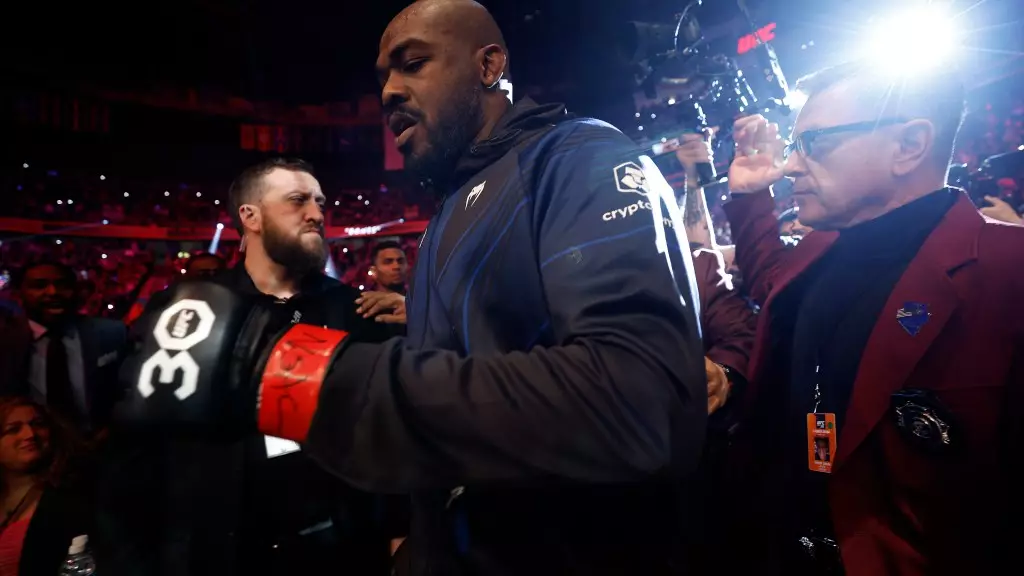In the world of mixed martial arts (MMA), few names evoke as much debate as Jon Jones. Recently, he has stirred conversations regarding his potential retirement after his upcoming heavyweight title defense against Stipe Miocic at UFC 309, set for November 16 at Madison Square Garden, New York. While Jones claims this bout may be his swan song, Chael Sonnen, a former fighter and current analyst, posits that this narrative might be nothing more than a strategic marketing maneuver.
Jon Jones holds an impressive record of 27 wins and 1 loss in MMA, cementing his legacy as one of the greatest fighters in UFC history. Yet, his remark about potentially retiring after fighting Miocic raises skepticism. Sonnen’s observation about Jones using the phrase “more than likely” is crucial. This choice of words suggests ambiguity rather than conviction. Such phrasing allows for interpretation, leaving the door open for different outcomes, which fuels speculation and media chatter—an invaluable asset in a sport where public interest drives viewership and revenue.
Sonnen ventures into the psychology of fighters when they hint at retirement. As he discusses in his YouTube commentary, the notion of stepping away from the octagon can serve multiple purposes. Besides generating buzz around an event, it can also manipulate fan sentiment, invoking a sense of urgency to witness a fighter’s possible farewell. In a sport where careers can be unpredictable and short-lived, leveraging retirement talk can be a calculative move to enhance the allure of an impending match.
This aligns with the broader trend in combat sports, where fighters occasionally use retirement statements as a tactic to boost ticket sales and attract pay-per-view buys. If fans believe they are witnessing a climactic end to a storied career, they are likely to flock to support that narrative in droves.
There’s a nuanced interplay between marketing and fighter psychology in Jones’ case. By invoking thoughts of retirement, Jones might be seeking affirmation from fans, trying to elicit a reaction that affirms his competence and relevance in the sport. This tactic can evoke emotional responses from fans, pushing them to rally around their favorite fighter in what they perceive to be a pivotal moment in his career.
Additionally, UFC CEO Dana White’s confirmation that Tom Aspinall will serve as a backup for the Jones vs. Miocic fight further cements the event’s significance. It underscores that the UFC is preparing for various outcomes, whether it be a classic showdown or a potential upset, increasing the stakes and, by extension, the audience’s investment in the event.
While Jones’ retirement hints can be taken at face value, they demand further scrutiny within the context of promotional strategies in the MMA landscape. Sonnen’s perspective invites fans and analysts alike to question the authenticity behind retirement claims, challenging conventional narratives about the motivations of high-profile fighters. As UFC 309 approaches, the mixed messages surrounding Jones adds layers of intrigue to what promises to be an electrifying clash with Miocic. Fans should remain cognizant of the broader implications of these statements, recognizing that even the most subtle words may be part of a larger marketing strategy in the fiercely competitive world of MMA.

